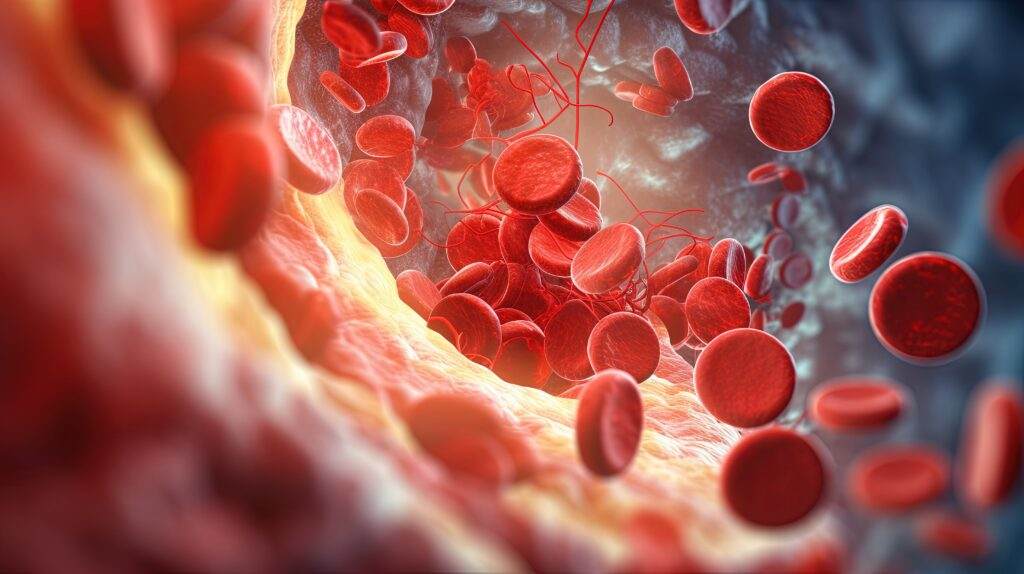Mixed hyperlipidemia is a complex lipid disorder characterized by elevated levels of total cholesterol, low-density lipoprotein cholesterol (LDL-C), triglycerides, and often low levels of high-density lipoprotein cholesterol (HDL-C). This condition significantly increases the risk of cardiovascular disease (CVD) and requires a multifaceted approach to management, where dietary modifications play a critical role. This article delves into the best dietary strategies for managing mixed hyperlipidemia.
What Is Mixed Hyperlipidemia?
Mixed hyperlipidemia, also known as combined hyperlipidemia, involves abnormalities in several lipid parameters:
Elevated LDL-C: Often termed “bad cholesterol,” high levels of LDL-C can lead to plaque buildup in arteries.
High triglycerides: Elevated triglycerides are a significant risk factor for atherosclerosis.
Low HDL-C: Known as “good cholesterol,” low levels of HDL-C are associated with increased cardiovascular risk.
The goal of managing mixed hyperlipidemia is to reduce LDL-C and triglycerides while increasing HDL-C to mitigate cardiovascular risks.
SEE ALSO: Which Nicotinic Acid Is Used to Treat Hyperlipidemia
Principles of A Heart-Healthy Diet
A heart-healthy diet for mixed hyperlipidemia should focus on the following principles:
Reduce Saturated and Trans Fats: These fats raise LDL-C levels and should be limited. Common sources include:
Saturated fats: Found in red meat, full-fat dairy products, butter, and some oils like coconut and palm oil.
Trans fats: Present in many processed foods, baked goods, and margarine.
Increase Unsaturated Fats: These fats can help reduce LDL-C and raise HDL-C. They are found in:
Monounsaturated fats: Olive oil, avocados, and nuts.
Polyunsaturated fats: Fatty fish (such as salmon, mackerel, and sardines), walnuts, flaxseeds, and sunflower oil.
Focus on Omega-3 Fatty Acids: These essential fats are particularly effective at lowering triglycerides. Sources include:
- Fish oil supplements
- Fatty fish
- Flaxseeds and chia seeds
- Walnuts
Increase Soluble Fiber: Soluble fiber helps reduce LDL-C by binding cholesterol in the digestive system and removing it from the body. Foods rich in soluble fiber include:
- Oats and barley
- Beans and lentils
- Fruits such as apples, oranges, and pears
- Vegetables like carrots and broccoli
Choose Whole Grains: Whole grains provide more fiber and nutrients compared to refined grains. Good options are:
- Whole wheat bread and pasta
- Brown rice
- Quinoa
- Bulgur
Include Plant Sterols and Stanols: These compounds help block the absorption of cholesterol. They are added to some margarines, yogurts, and orange juice.
Limit Sugar and Refined Carbohydrates: High sugar intake can elevate triglycerides. Reduce consumption of:
- Sugary beverages
- Sweets and desserts
- Refined grains like white bread and pastries
Breakfast
Oatmeal topped with fresh berries and a tablespoon of ground flaxseeds
A glass of orange juice fortified with plant sterols
Green tea or black coffee
Mid-Morning Snack
A small handful of walnuts or almonds
A piece of fruit (apple, pear, or orange)
Lunch
Grilled salmon salad with mixed greens, cherry tomatoes, cucumbers, and a dressing made with olive oil and balsamic vinegar
A serving of whole grain bread
Afternoon Snack
Low-fat yogurt with a tablespoon of chia seeds
A small carrot and cucumber sticks
Dinner
- Quinoa cooked with vegetable broth
- Roasted vegetables (broccoli, carrots, and bell peppers) drizzled with olive oil
- Baked chicken breast or tofu
Evening Snack
A small bowl of berries with a sprinkle of nuts
Specific Nutrients And Their Role
Omega-3 Fatty Acids
Omega-3 fatty acids, especially EPA and DHA, found in fish oil, are highly effective in lowering triglycerides. They also have anti-inflammatory properties and can help improve overall heart health.
Fiber
Both soluble and insoluble fiber are beneficial. Soluble fiber lowers LDL-C and overall cholesterol levels, while insoluble fiber aids in digestion and overall health.
Antioxidants
Antioxidants found in fruits and vegetables help reduce oxidative stress and inflammation, which are critical in managing cardiovascular health. Examples include:
Vitamin C: Found in citrus fruits, strawberries, and bell peppers.
Vitamin E: Present in nuts, seeds, and green leafy vegetables.
Plant Sterols and Stanols
These substances structurally resemble cholesterol and compete for absorption in the digestive system, thereby reducing cholesterol levels.
Additional Lifestyle Modifications
Regular Exercise
Exercise is a crucial component of managing mixed hyperlipidemia. It helps in:
Increasing HDL-C
Reducing LDL-C and triglycerides
Improving overall cardiovascular health
Aim for at least 150 minutes of moderate-intensity aerobic activity per week, such as brisk walking, swimming, or cycling.
Weight Management
Maintaining a healthy weight is vital as obesity can exacerbate lipid abnormalities. A combination of diet and exercise can help achieve and maintain a healthy weight.
Avoid Smoking
Smoking lowers HDL-C and damages the blood vessels, increasing cardiovascular risk. Quitting smoking is one of the best ways to improve heart health.
Conclusion
Managing mixed hyperlipidemia requires a comprehensive approach that includes dietary modifications, regular physical activity, weight management, and possibly medication. The best diet for mixed hyperlipidemia emphasizes reducing saturated and trans fats, increasing unsaturated fats, omega-3 fatty acids, and fiber, and including antioxidants and plant sterols. By following these guidelines and making sustainable lifestyle changes, individuals with mixed hyperlipidemia can significantly improve their lipid profiles and reduce their risk of cardiovascular disease.


